Privacy and Apple go hand in hand - it has for years now, and its recent video starring Nick Mohammad from Ted Lasso to promote Data Privacy week was inspired.
However, with today (January 28) being Data Privacy Day, it's important to look at other features that you can use with your iPhone, iPad, and Mac to help protect your data.
All of these are features that I switched on as soon as they've been introduced - with Advanced Data Protection being the latest one for me, as it was recently introduced in iOS 16.3.
With this in mind, there are a few other features, alongside Advanced Data Protection that you should consider switching on, and why you should do it as soon as.
Advanced Data Protection
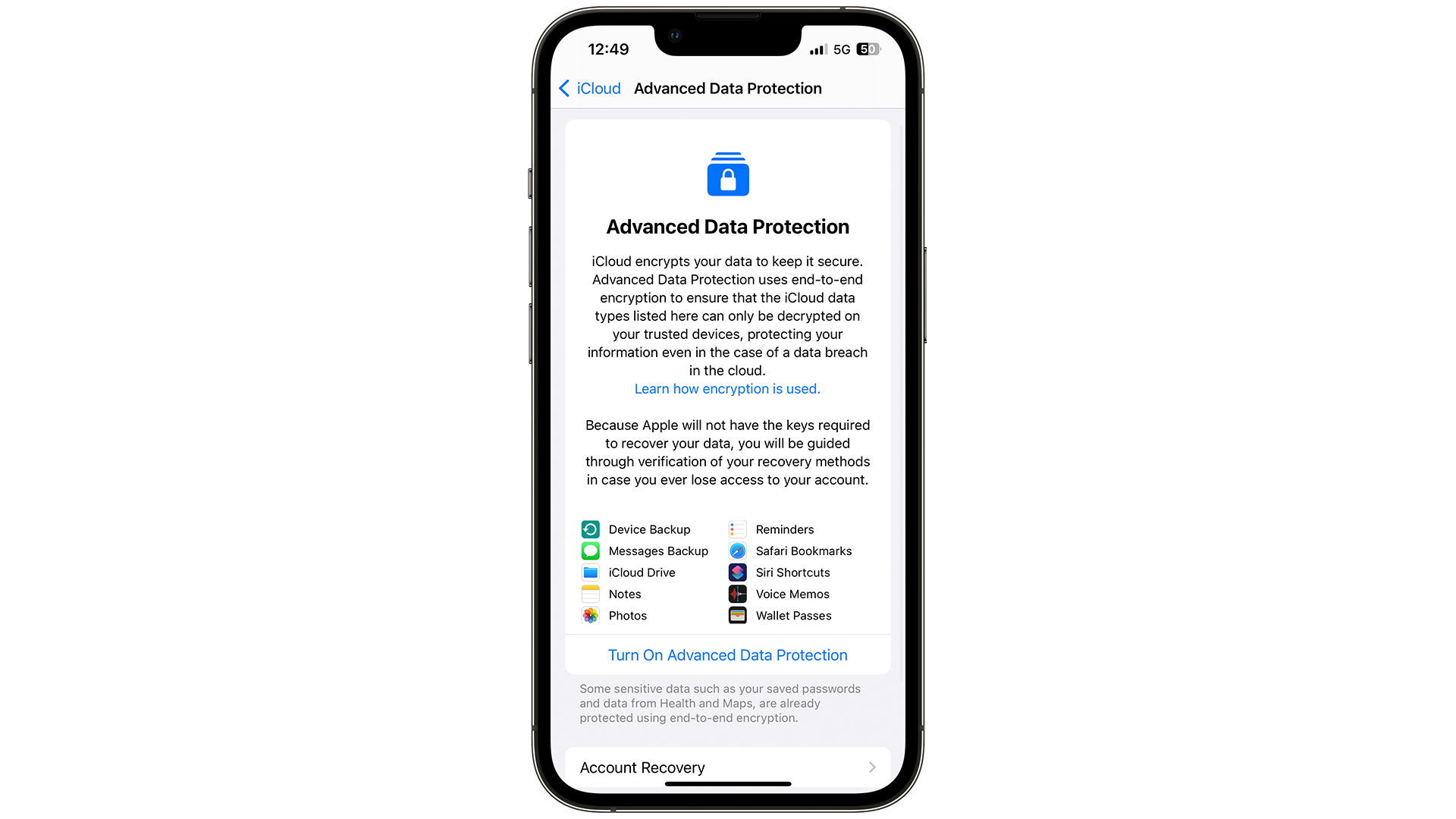
Introduced in iOS 16.3, not only does this allow you to protect your iCloud backups with an encrypted password, but your Safari bookmarks, your iCloud Drive contents, Notes and much more.
This way, you and you alone can only access this data - not even Apple. It adds another layer of protection for your data, especially if someone tries to break into your account, so any valuable data won't be able to be accessed by anyone else.
This feature also applies to iPadOS and macOS, so your data there in the same categories will be protected.
You can switch this on by going to Settings > iCloud > Advanced Data Protection.
Mail Protection
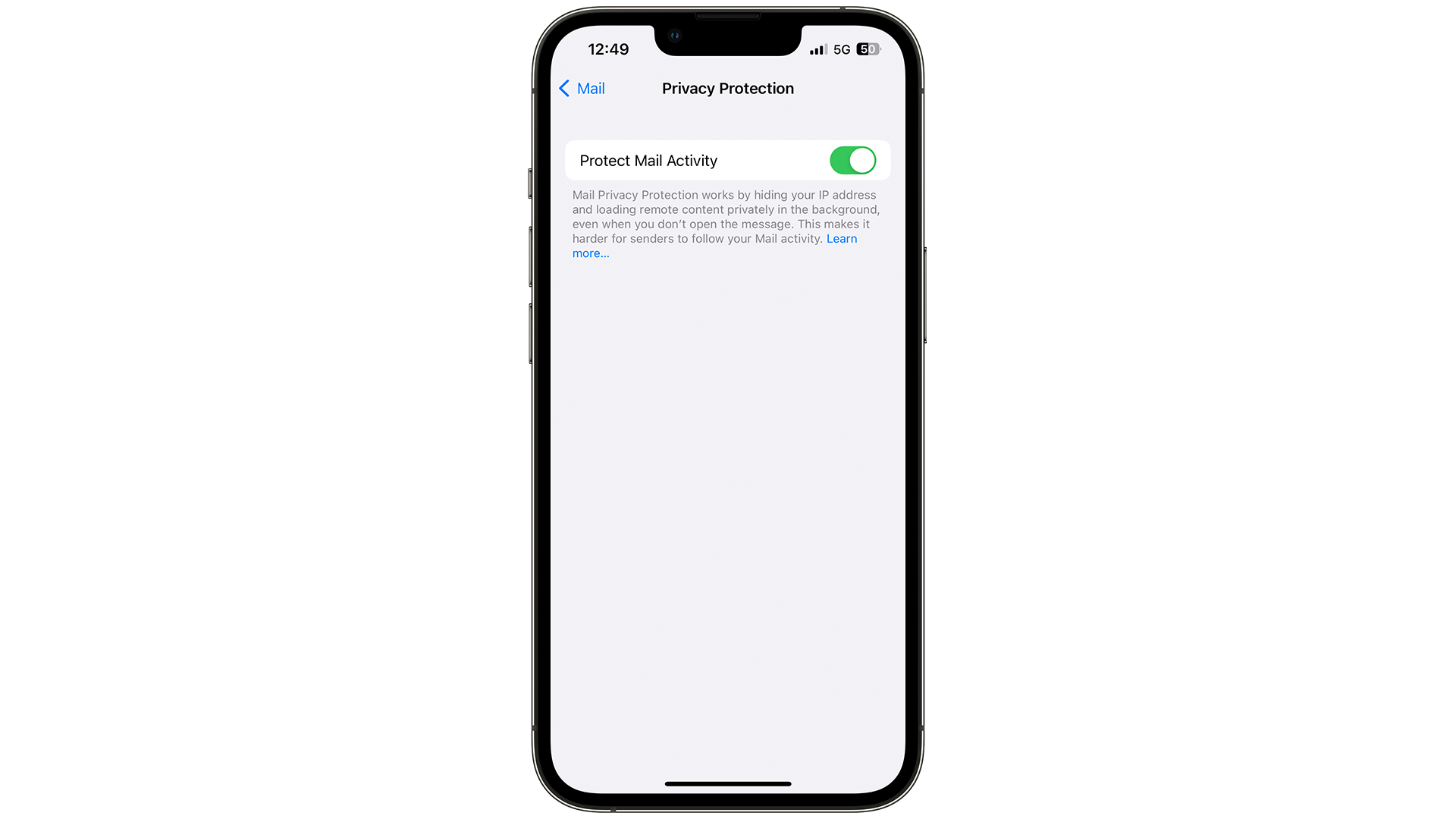
We've all come across spam emails and other types that try to get your information to try and track you outside of your email. By going to Settings > Mail > Privacy Protection, Apple's Mail app will hide your IP address when you open a new message from your Inbox.
This means that the sender will not be able to tell if you opened their email, alongside a rough idea on the location of where you opened it.
Location
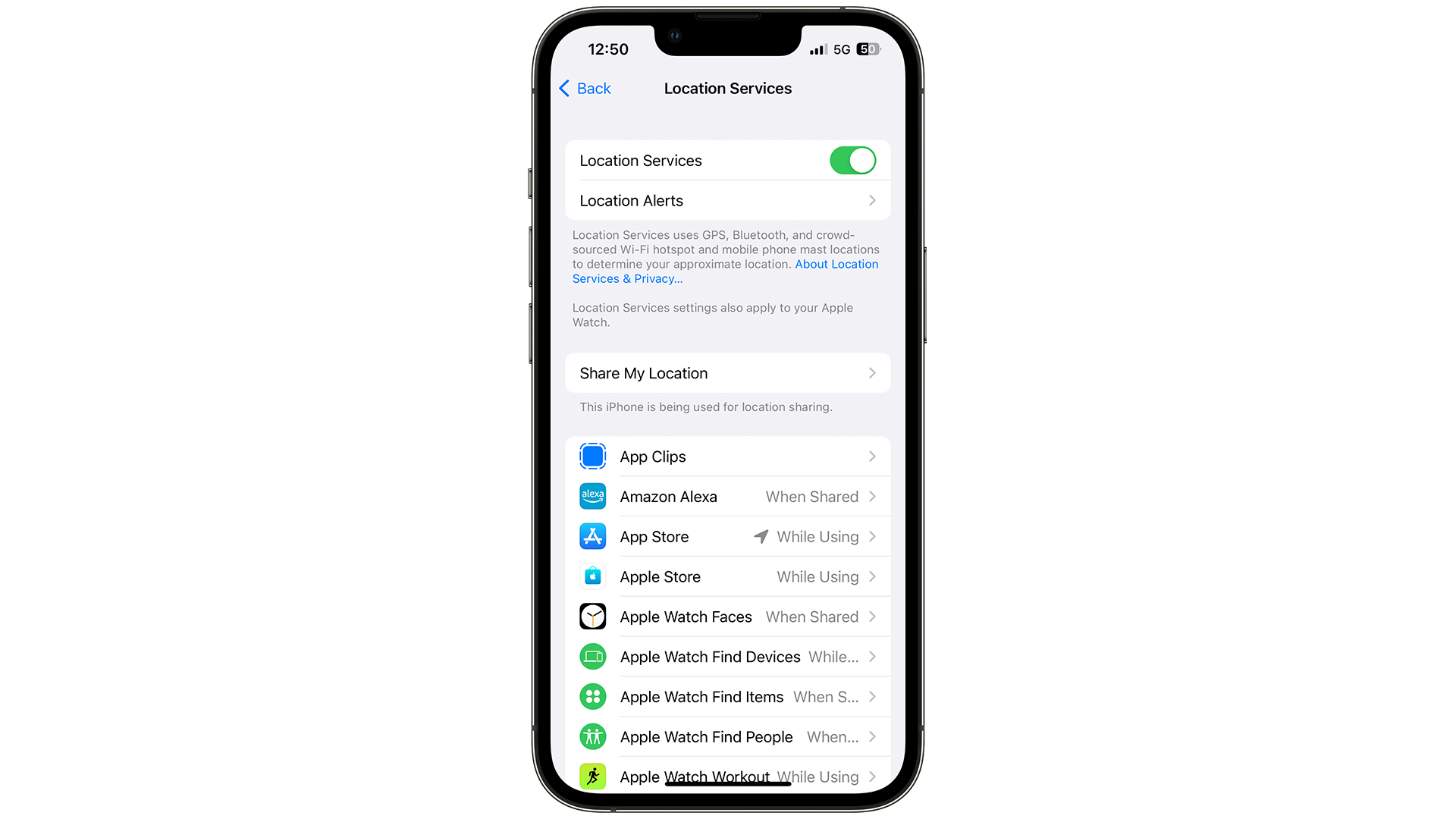
It could be argued that too many apps ask for your location - Facebook is a good example here, especially when you use it to look at memes and check on how certain family and friends are.
Yet you might find that there could be too many apps tracking your location all the time, instead of when you're using the app.
You can check this by going to Settings > Privacy & Security > Location Services and checking on every app displayed in the list, to see if its location is set to 'Always Allow' or 'Allow while Using'. Apart from Weather and Map apps, there really isn't a need to have 'Always Allow' on the majority of apps.
So set aside a few minutes in a lunch break and see which apps are trying to track your location, even when you're not using them.
Safety Check
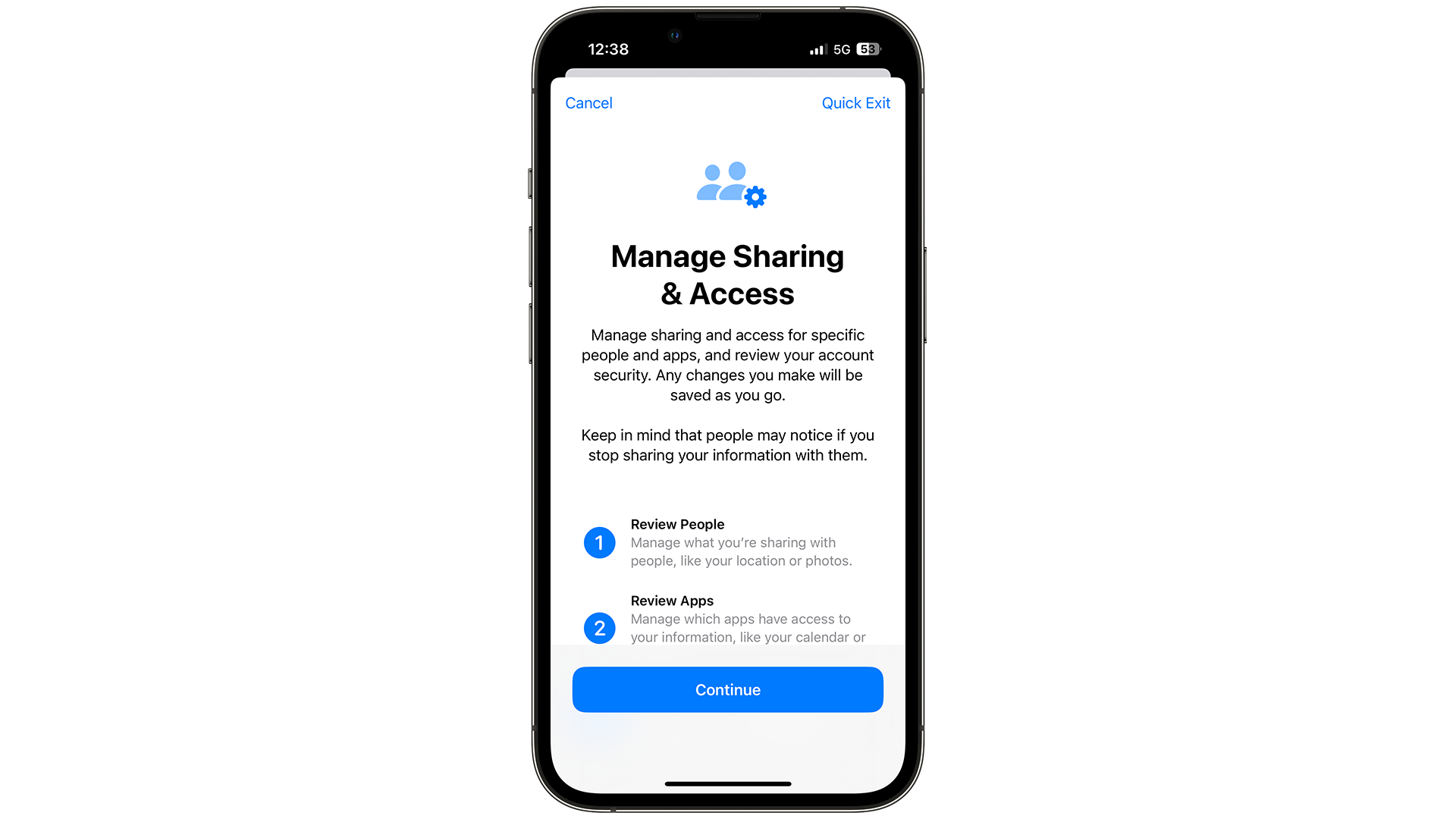
Introduced in iOS 16, this feature could be a big help in protecting your data from those you'd like to have out of your life.
Safety Check, found in Settings > Privacy & Security > Safety Check will give you a detailed overview of who's sharing what data with you, and you can easily restrict this in a couple of taps.
There's also a 'Quick Exit' on the top right which will bring you straight back to the home screen if someone wants to suddenly check your phone without your permission.
Passkeys
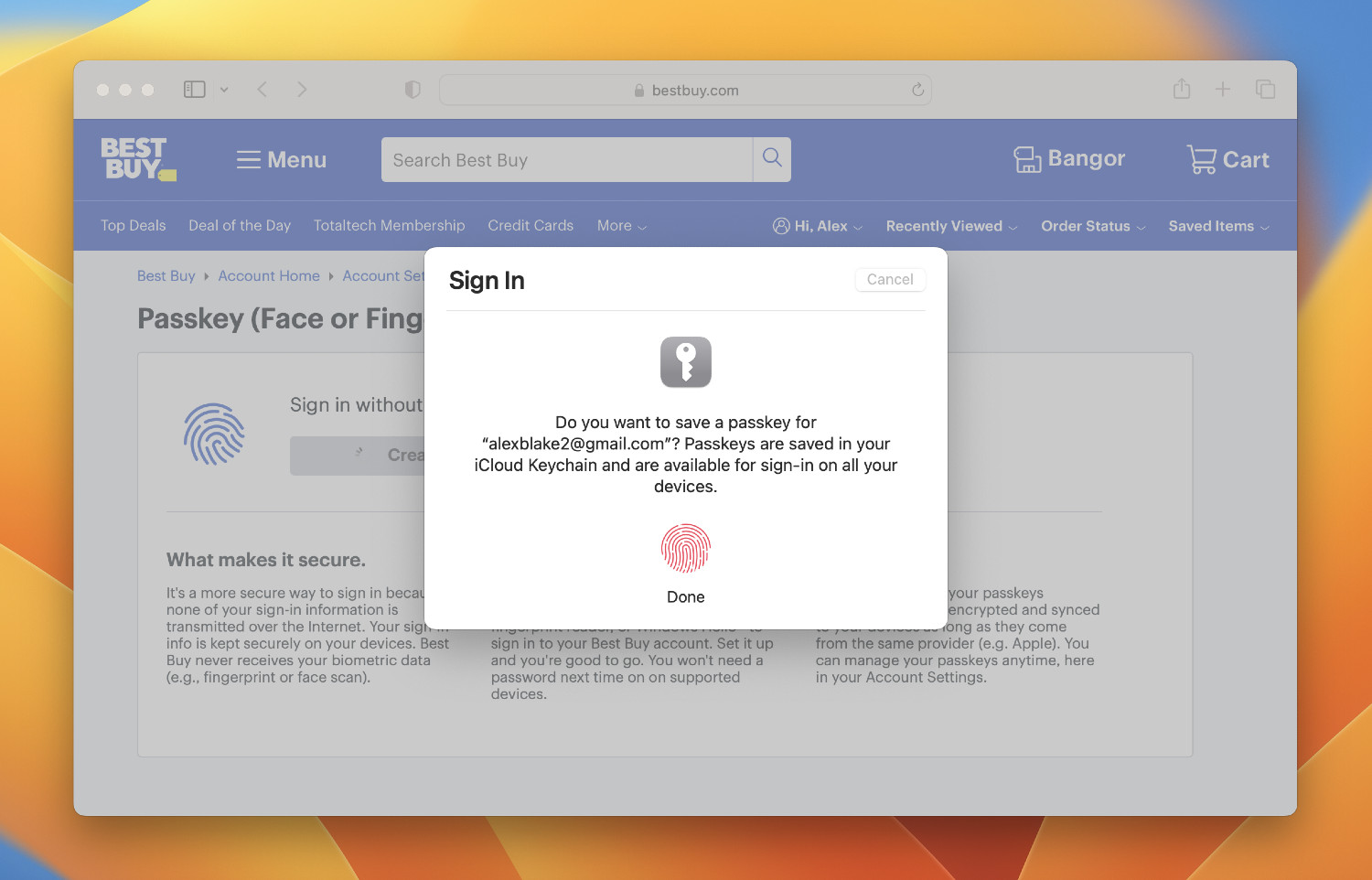
Another feature that launched with iOS 16, iPadOS 16.1 and macOS 13 Ventura, you can register a new account with a site without having to enter a new username and password.
You only need TouchID or FaceID to authenticate this, and you're good to go.
However, if it's an account you'll need in the future, you can save this to your iCloud Keychain, Apple's method of storing your usernames and passwords, by checking the 'Save passkey for account' option when you create one.
App Tracking
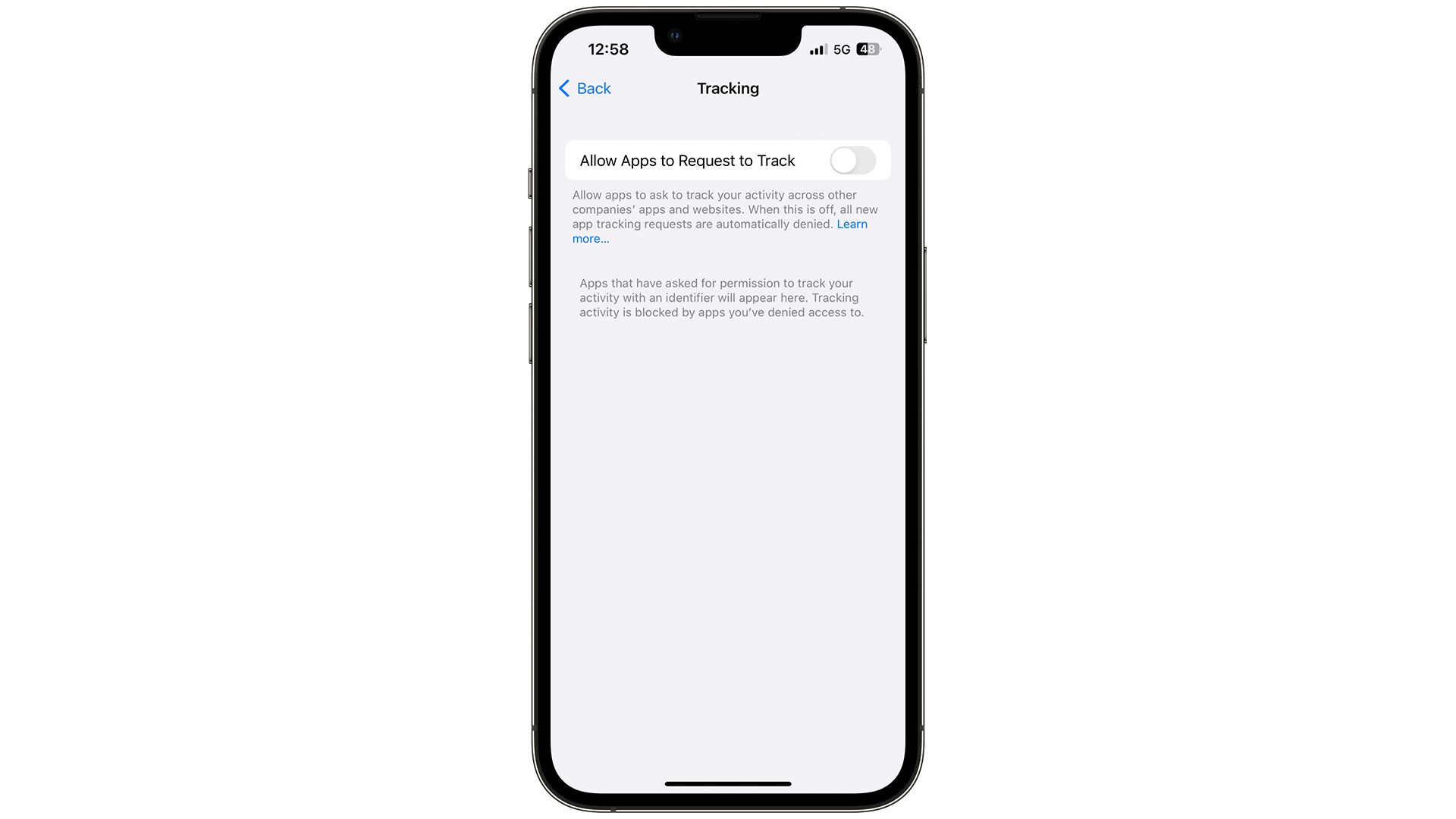
A feature that Facebook was publicly not happy about - but in retrospect, this only made Meta look bad in the face of privacy.
Some apps have the ability to track your browsing in other apps like Safari and Mail, and as this is done with multiple methods, it's difficult for Apple to shut down these individual cases, which is where App Tracking comes in.
You can enable all apps to not track you, by going to Settings > Privacy & Security > Tracking. You have a choice to turn on or off tracking for specific apps, or you can turn off the option altogether.
Comments